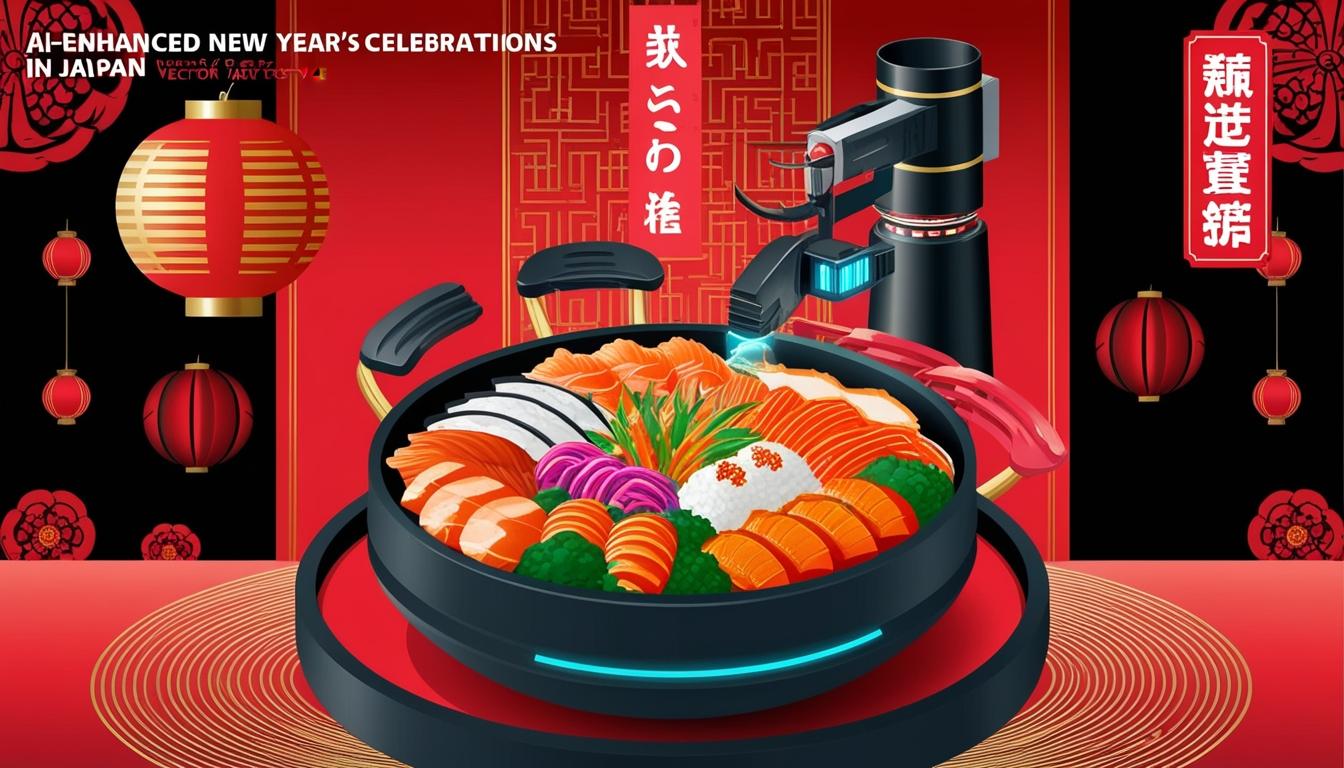Artificial intelligence is making significant strides in enhancing traditional practices during the New Year’s holidays in Japan, with innovative applications aimed at improving both convenience and the overall festive experience.
As the New Year approaches, numerous people flock to shrines to engage in traditional activities, with Mitsumine Shrine in Chichibu, Saitama prefecture drawing approximately 30,000 visitors annually. In an effort to alleviate congestion caused by these gatherings, the shrine's website now features a real-time parking and traffic notification system. Users accessing the site on their smartphones are informed about the status of nearby parking lots, receiving updates such as “some vacancies” or “full” based on the real-time analysis conducted by AI. This system—developed by Tokyo-based IT company Vacan Inc.—utilises feed from four strategically placed cameras that assess crowd density in the area. Vacan’s services have been widely adopted across more than 20,000 facilities in Japan, including revered sites like the Ise Grand Shrines and Dazaifu Tenmangu Shrine. Vacan CEO Takanobu Kawano expressed a desire to broaden the service’s accessibility, stating, “We would like to expand our service for greater convenience.”
AI is also influencing the culinary aspect of the holidays through the revival of osechi dishes, a traditional Japanese cuisine served during New Year’s celebrations. Aeon Retail Co. has ventured into producing osechi inspired and designed by generative AI, labelling this innovation as a fusion of tradition and futurism. The dishes not only include classic offerings like salted herring roe and boiled abalone but also incorporate unorthodox items such as chocolate and deep-fried chicken adorned with colourful decorative dust. An official from Aeon Retail noted, “The unexpectedness of using AI for osechi... has received a greater response than we had expected,” highlighting the positive reception to this modern twist on traditional fare.
However, market analysts from Fuji Keizai Co. report a slight decline of 1.5% in the market for osechi dishes in 2024 compared to the previous year. Miwa Funase, a senior researcher at Fuji Keizai, emphasized the importance of enhancing the value of osechi dishes to justify any price increases, suggesting that “entertainment features such as ‘AI Osechi’ will be needed more” to stimulate sales in this competitive market.
Furthermore, the tradition of sending New Year’s greeting cards is facing challenges as it declines in popularity. In response, Osaka-based Greeting Works Co. has launched an innovative online service that leverages AI to assist users in creating and designing unique cards. An official from the company stated, “We would like to make writing New Year’s cards easier with the use of AI,” offering a streamlined approach to this customary practice.
The integration of AI in these various facets of the New Year celebrations illustrates a growing trend in the utilisation of technology to enhance traditional experiences in Japan, signifying a blend of heritage with modernity as businesses seek to adapt to changing consumer behaviours.
Source: Noah Wire Services
